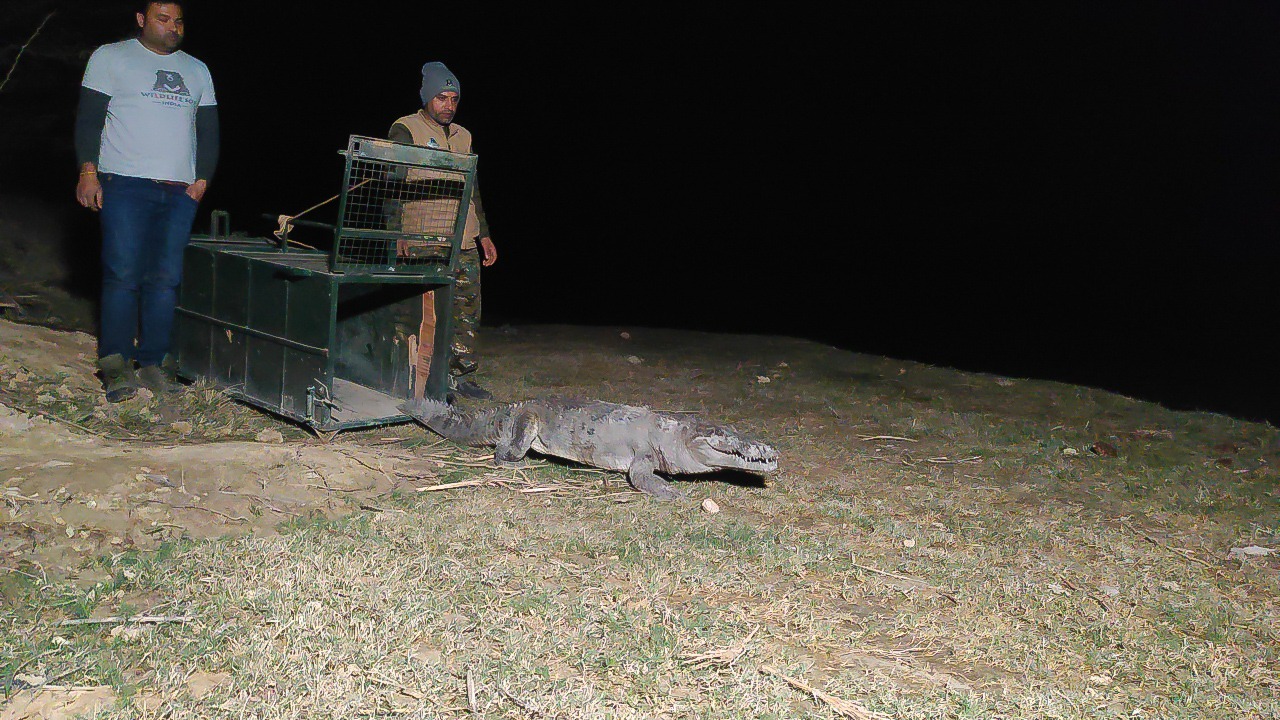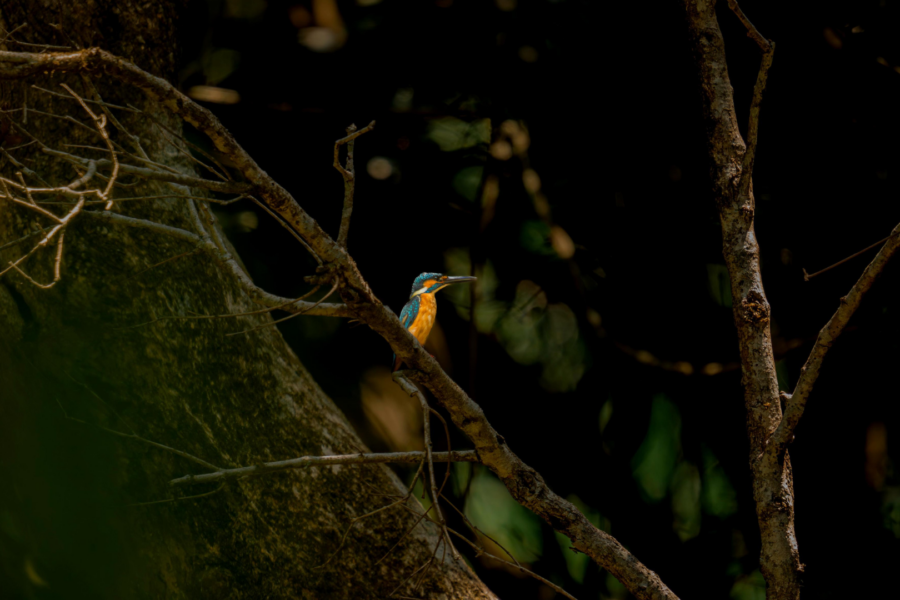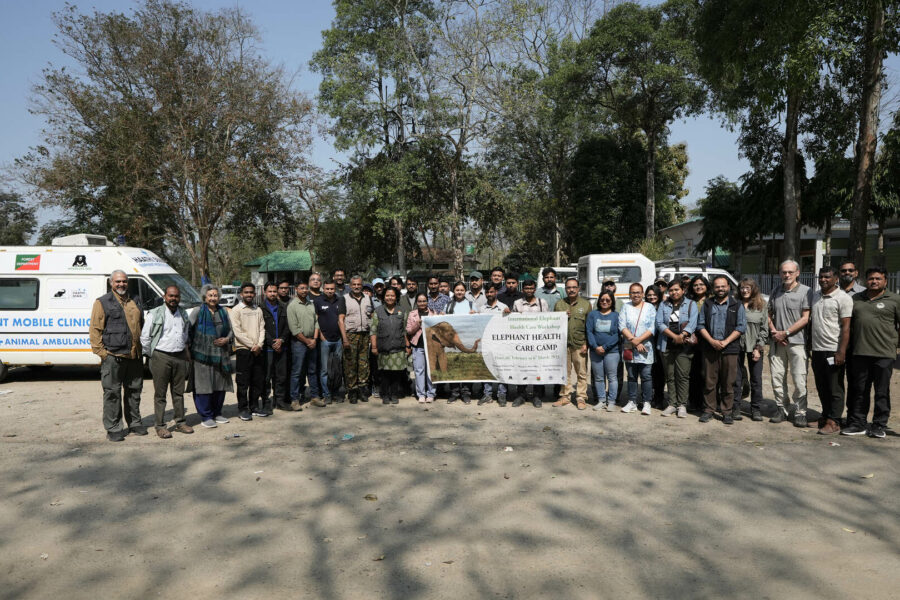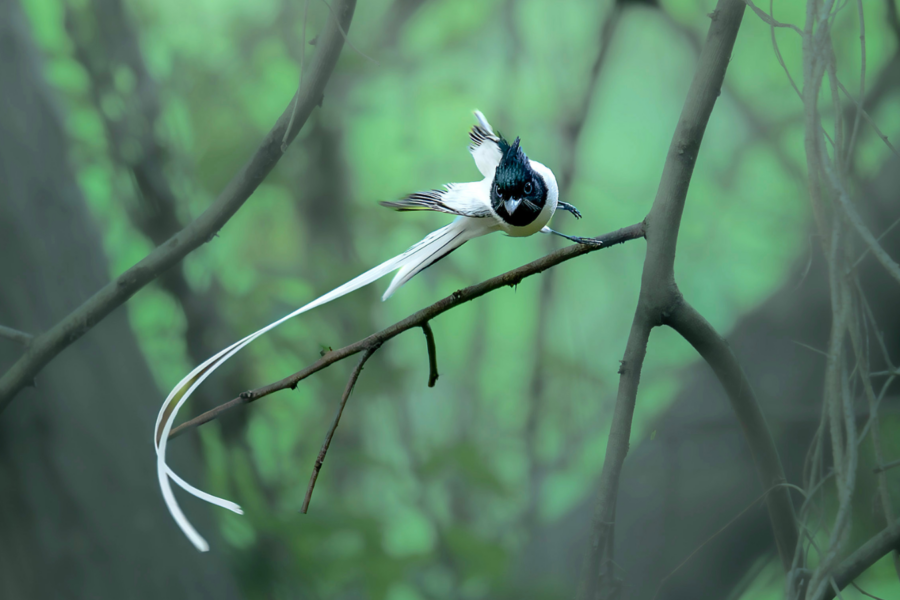The Wildlife SOS Rapid Response Unit worked hard in the month of February to address concerned calls received. Our team works tirelessly, seven days a week, to make sure that no animal is in the way of harm. A whopping total of 364 animals were rescued from across the four states where our rescue teams operate from!
From reuniting a five-day-old leopard cub with its mother in Maharashtra, to saving two black kites in Delhi NCR in back-to-back operations, this month was filled with adrenaline-filled rescue missions.
Delhi NCR
Being India’s capital city, Delhi is known for its dense population and narrow pathways, where animals have learned to coexist with human beings. These precious animals are often found in distress within this bustling metropolitan city. February saw our team rushing to the rescue of 119 animals from Delhi NCR.

Our round-the-clock Rapid Response Unit in the national capital region received the most number of calls for birds in distress this month. In a one-of-a-kind mission, two black kites were rescued one after the other. Our team received a call from the Lajpat Nagar Police Station, where a black kite was found lying motionless on the floor in its parking lot. Shortly after this, the Delhi Police informed us about another black kite who was found immobile on the side of a road. Both the raptors are currently under our professional care, and will be released back into the wild once deemed fit. Common pigeons, barn owls and a species of ibis were also rescued, with our team managing to save 86 birds in all.
Along with these, 15 reptiles, such as common Indian wolf snakes, common rat snakes, monitor lizards, Indian rock pythons, a common cobra and a turtle, were gently rescued from perilous situations. In addition to the birds and reptiles, our team also saved 18 mammals, out of which nine were monkeys, five were squirrels, three were bats, and one was a civet cat!
Agra, Uttar Pradesh
In February, the total number of animals rescued from Agra were 98, out of which 23 were reptiles, 23 were birds, and the mammal count was 52. Among the mammals, 46 rhesus macaques were aided to. The increase in human settlements all over the country have led to monkeys adapting well to urbanscapes, and their habitats have long been interconnected with ours. While monkeys find food supply easy to access this way, the dire consequences they often face are dog attacks, dehydration, and electrocution from electric wires laid across the city.

Reptiles extricated from different sites in Agra included spectacled cobras, Indian rat snakes, red sand boas, checkered keelbacks and common wolf snakes. In one of the most notable instances this month, a six-foot mugger crocodile was rescued using a trap cage from Paliya Doyam village in Jasrana, Firozabad. After coming out of the village pond, the crocodile had wandered onto a road, raising alarm among residents. Ensuring his good health through a medical examination, the crocodile was released back into its natural habitat.
Srinagar, Jammu And Kashmir
The rescue team in Srinagar is always alert and ready to address calls received on the hotline. Among the four rescues that took place in the month of February, one was related to a monkey and three were regarding birds vulnerable to danger. These birds included a barn owl, a black kite and an eagle. The Jammu and Kashmir Rapid Response Unit, under the leadership of Education Officer and Programme Head Ms. Aaliya Mir, was quick to arrive at the destination so that each animal could be urgently attended to.
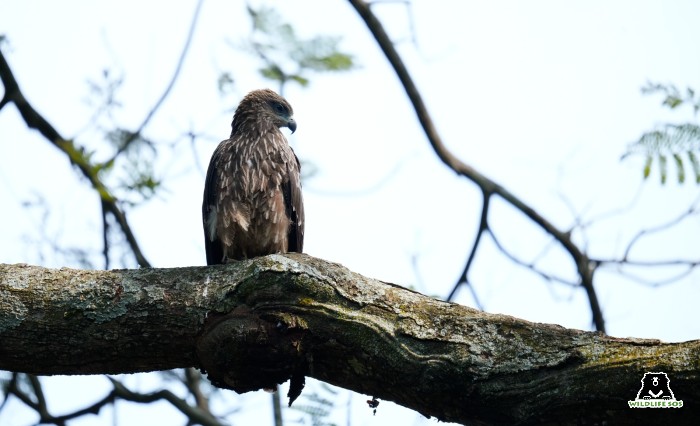
Vadodara, Gujarat
The highest number of rescues out of the four cities took place in Vadodara, with 143 animals tended to in February. These included 35 reptiles, 78 birds, and 30 mammals. Gujarat is known to be home to the Big Four venomous snakes in India and this month, anxious calls were received regarding 14 venomous snakes. Most snakes were found in challenging situations, requiring a team of experts to make sure that the serpents were safely rescued and relocated to their natural habitat. In one such incident, a worker at the Akota stadium in Vadodara reached out to our team when he found a Russell’s viper in the stadium during his routine cleaning round. The snake was safely extricated and was relocated to its natural habitat.

In a strategic operation carried out by Wildlife SOS-GSPCA (Gujarat Society for Prevention of Cruelty to Animals) with the help of Nashik DFO, four pairs of monitor lizard genitals were recovered near the Gujarat-Maharashtra border, after one of our team members posed as a dummy customer.
How can you help?
Animals more than often suffer in instances of poaching to abet illegal trade, and in urban landscapes, they are prone to situations that warrants danger to them. If you spot any wildlife caught in an untoward situation, reach out to your nearest animal welfare organisation immediately.
In case you are based out of the following four regions, you reach out to Wildlife SOS 24X7 Rapid Response Units:
Delhi-NCR: +91-9871963535
Agra, Uttar Pradesh: +91-9917109666
Vadodara, Gujarat: +91-9825011117
Srinagar, Jammu and Kashmir: +91-7006692300/ +91-9419778280

